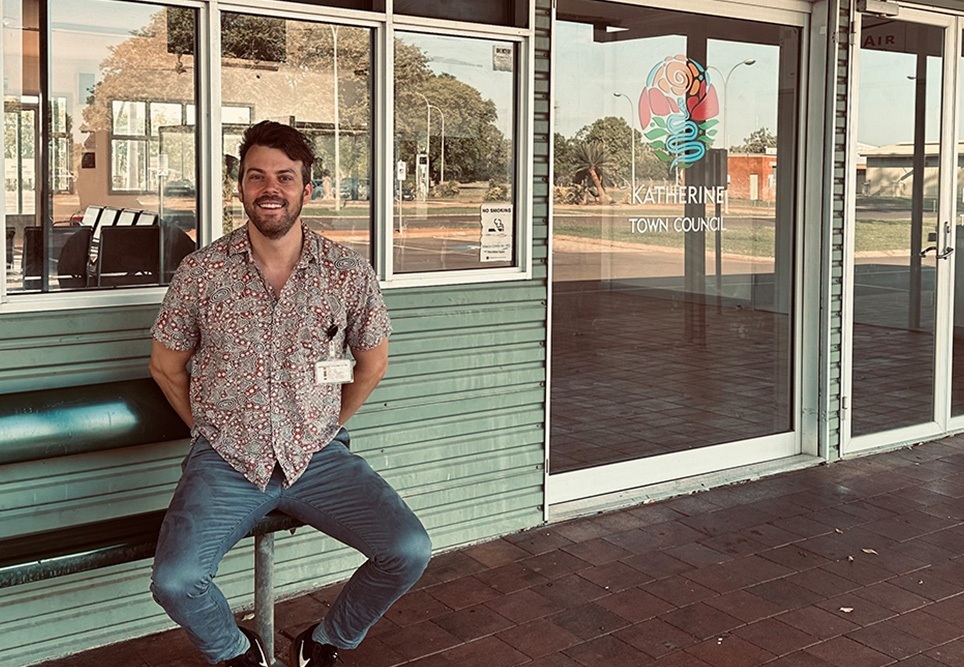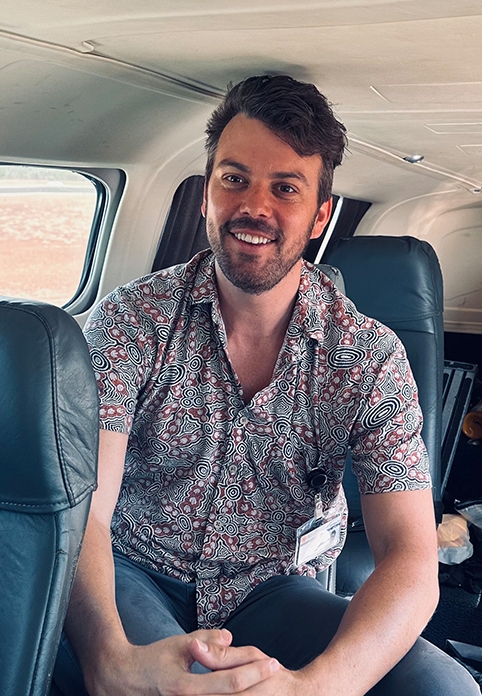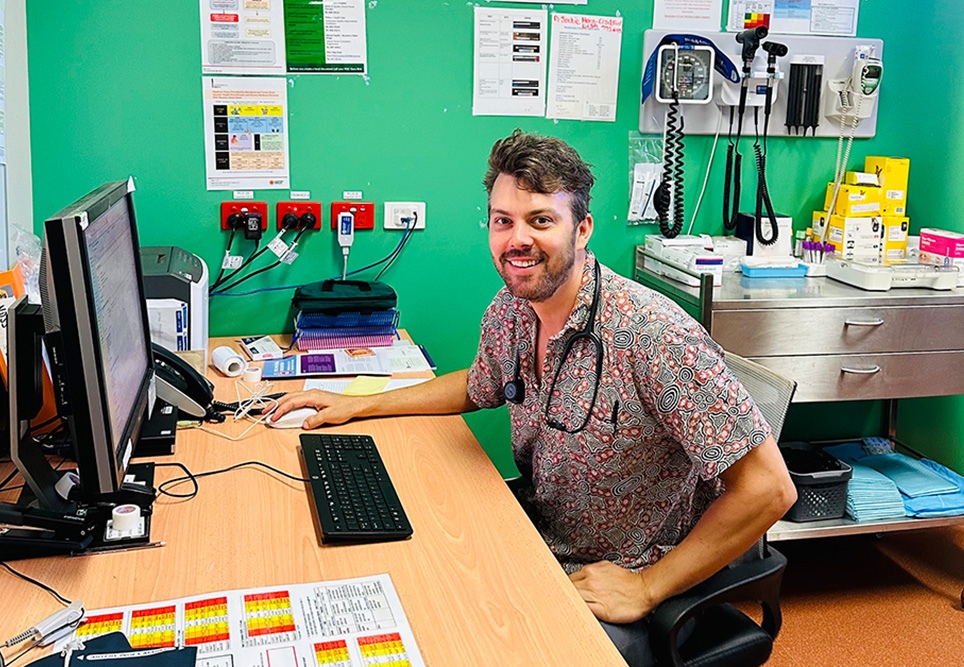This site may not work properly using older versions of Edge and Internet Explorer. You should upgrade your browser to the latest Chrome, Firefox, Edge, Safari, or any other modern browser of your choice. Click here for more information.
Your Stories
This is where we tell your stories, cover topical issues and promote meaningful initiatives.
Q&A with Nurse Practitioner Tom Rampal
Katherine-based NP Tom Rampal talks balancing personal and professional lives, becoming a nurse practitioner, and the ins and outs of chronic disease management.
Your career has spanned both urban and remote locations. Did you start off in the city and move remote? What drew you to work in Australia’s remote areas?
I lived and worked in Melbourne for many years, in a busy metropolitan hospital before transitioning into remote health. I’ve been lucky enough to travel and work in some amazing locations widespread across Northern Australia and internationally.
I think the work drew me in initially because it’s unique, challenging and interesting. I also have loved getting out and seeing some stunning and remote parts of Australia.
How have you balanced your personal and professional lives while gaining your NP endorsement and in your years as a locum? From what I understand you completed your NP qualifications while on Groote Eylandt – any advice to people who are pursuing additional qualifications while working?
Becoming a Nurse Practitioner requires planning and commitment but the payoff is worth it, with many exciting career opportunities. I moved to Groote Eylandt for a few years to complete my Nurse Practitioner studies and meet the criteria for endorsement as a Nurse Practitioner.
Balancing personal life on Groote Eylandt was easy – I invested in a 4wd and a small boat so time outside of work (and study) included camping, boating and fishing. Groote Eylandt is the crème de la crème of living in remote locations – it’s absolute paradise!
My years working as a locum required balancing personal and professional life. This can be tricky. I think it’s important to find a healthy balance of time away on a contract versus time at home connecting with friends and family.
Was it always your goal to be an NP? When did you first set this goal and what inspired you to pursue it?
I became a Nurse Practitioner to expand my knowledge, skills and scope of practice with the aim of contributing to improved access to healthcare for patients, particularly in a remote setting. I first set the goal for myself about five years before I was accepted into the course. This gave me plenty of time to prepare, complete relevant studies, upskill and find
a suitable workplace.
What does your current role entail? What does the ‘average day’ look like, if there is such a thing? Paint us a picture!
In my current role, I work for NT Health in the Big Rivers Region. I live in Katherine and service the Numbulwar Primary Health Care Centre which is situated in the Gulf of Carpentaria
in the Northern Territory. An average day includes direct client care in chronic conditions management, completing comprehensive assessments, reviewing management plans, prescribing medications, ordering tests and undertaking investigations. I also refer on to specialists and provide patient health education.
My specialty is focused in primary health care and chronic and complex case management.
I do however see clients for acute and emergency presentations and support the team in those situations as well. Whilst working independently, a big part of my role is to collaborate with the entire healthcare team including GPs, Remote Area Nurses, Aboriginal Health Practitioners, Specialists and Allied Health staff.
All health professionals can refer clients who are not meeting targets in care or management plans to the Nurse Practitioner. However, referrals aren’t always required as I will also see any client who walks in on the day.
Day to day, my work can vary depending on the staff available, unforeseen events such as cultural ceremonies or emergencies – we have definitely had cyclones travelling towards the community. Things can change dramatically from one day to the next which keeps life interesting.
What aspects of your job bring you the most professional satisfaction?
I enjoy working in a diverse environment, building relationships with clients and seeing improvements in chronic disease management and in turn positive patient outcomes. Having a ‘yarn’ with clients can be special – hearing people’s stories and learning about their rich cultures and traditions.
Can you elaborate on the chronic disease management aspect of your role? Do you work with specialists closely?
Chronic and complex case management involves direct client care in population groups with chronic or complex illness including diabetes, Chronic Kidney Disease, cardiac conditions and respiratory conditions. I feel strongly about creating a whole team approach to care, to achieve good holistic primary health care in the community.
I work closely with specialists – this can be both planned telehealth consults, case conferencing or ad hoc reviews. These reviews occur mostly with an Endocrinologist, General Physician and a Renal Physician based in Melbourne.
Many aspects of your role (e.g. outreach, chronic disease management) help people to receive care where they live and limit evacuation/hospitalisations. The benefits are obvious,
but we’d love to hear your perspective on the importance of these outcomes.
Nurse Practitioners (as well as the whole healthcare team) boost healthcare availability and service delivery in regional and remote areas, helping to improve access to health patient-centred care and chronic disease management as close to home as possible.
Good chronic disease management helps reduce some patient evacuations and hospitalisations as we are able to treat and care for our clients in community. Collaboration with the entire healthcare team is crucial for holistic patient care. I see Nurse Practitioners as part of the solution to improving health outcomes. There is plenty of work for all healthcare professionals and we need the right skilled people on the ground to provide evidence-based, culturally safe care.
Have your burning questions answered in these additional Q&As on remote safety and becoming a nurse educator.


